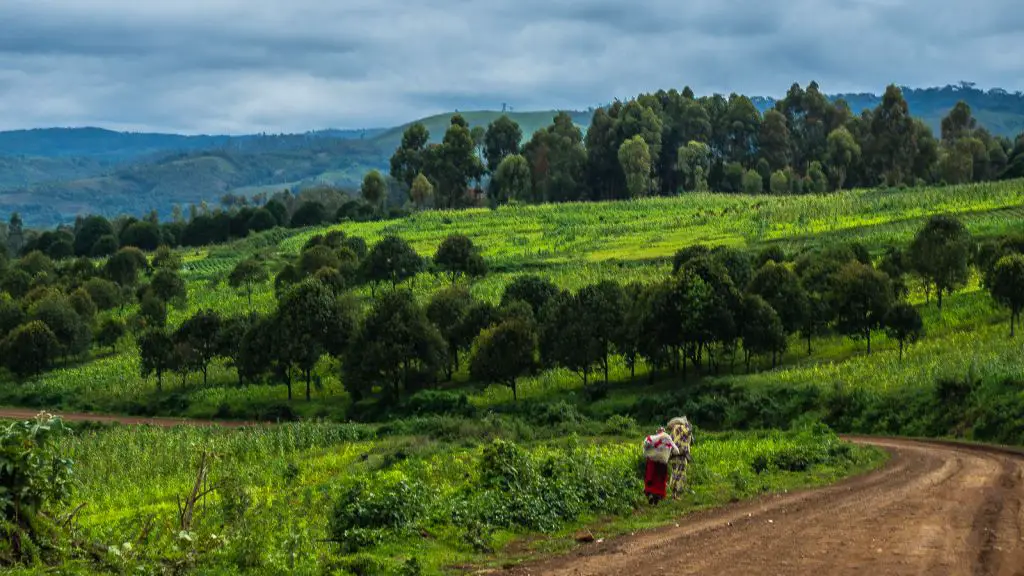Statistics show that the iGaming market is actively developing, and this trend will continue in the future. According to a report by Grand View Research, the total global iGaming market in 2019 was estimated at $53.7 billion. The compound annual growth rate will remain at 11.5% until 2027.

Simultaneously, the expected number of online gamers will increase to 233.7m. This trend is driven by the greater availability of casinos worldwide and the convenience, diversity and innovation of the iGaming industry. However, development is not the same across regions.
Here is comparative data for the USA and Africa iGaming markets.
- Total market revenue at the end of 2023: US$25.22bn in the USA vs US$1.63bn in Africa.
- Annual growth rate (2023 – 2027): 12.07% in the USA vs 8.51% in Africa.
- The average revenue per user in 2023: US$346.30 in the USA vs US$296.00 in Africa.
- User penetration in the iGaming market by the end of 2023: 14.3% in the USA vs 0.4% in Africa.
Although the online gambling market is developing in both regions, the pace differs significantly. This is mainly due to the availability of the latest technologies (AI, 5G, and more) and regulatory features.
Regulatory Framework
The iGaming regulations in both regions are significantly different. There are both cultural and traditional reasons for this, as well as the specific laws of each state (USA) or country (Africa).
USA
In the US, most states have legalized iGaming relatively recently, following the overturning of the PASPA Act in 2018 by the Supreme Court. However, states have been able to regulate their American online casinos since 2011.
- New Jersey. Online poker has been legal here since 2011, and since 2013, the Ministry of Justice has added slot machines, blackjack and roulette to the list of legal entertainment.
- Pennsylvania. Online casinos here have been legal since 2017. Any player over 21 can play slot machines, lotto, blackjack, poker, and more. In this case, the casino will pay 54% of the money earned on slot machines and 14% of income from table games.
- Nevada. Here, the range of games is limited to online poker, while slot machines and blackjack are prohibited. This is motivated by protection from unfair competition with land-based casinos.
- Delaware. Online casinos have been available here since 2012, although only three sites are available.
- Michigan. The iGaming industry has been legal here since 2019, and during the first 2 years, it brought 2 billion dollars in the state’s budget.
- West Virginia. Since 2019, there have been 9 online casinos operating here, which in 2022 brought the state $769 million to the budget.
As for other states, many are just on the path to legalization. For example, Illinois, Indiana, Iowa, Florida, and New York only draft bills. The exceptions are Hawaii and Utah, which have promised not to legalize the iGaming industry shortly.

Africa
In most African countries, iGaming is prohibited due to cultural and religious differences. At the same time, there are 2 striking examples of countries where iGaming is thriving, being the best place for digital nomads.
Nigeria
Despite the growing online gambling market, there are problems with dual licenses being issued simultaneously by the National Lotteries Regulatory Commission (NLRC) and the Lagos State Lotteries Board (LSLB).
Tanzania
The region is becoming a fully regulated market, attracting operators from all over the world. The Tanzania Gaming Board administers licenses. As for other regions, the situation is quite blurred. For example, only land-based casinos are officially regulated in Kenya, Uganda and Zambia. At the same time, licenses that are intended for traditional casinos are also offered to online operators.
Comparison of USA and African iGaming Regulatory Approaches
The commonality among both regions is the desire to inbuilt the iGaming industry into the economy and gain control over it since this is an undeniable source of budget replenishment. There are also trends towards easing prohibitions and expanding the range of services. However, different regions’ cultural and religious peculiarities in Africa are more pronounced than in the USA.

There are also differences in the unevenness of the legalization of the iGaming market in different African countries compared to the USA. While Tanzania and Nigeria actively develop the industry, online gaming is banned in many other African countries. The USA is also distinguished by a more fundamental approach to regulation when all prohibitions and permits are clearly spelt out. In Africa, on the contrary, in regions where iGaming is permitted, there may be problems with law interpretations and double licenses, as is the case in Nigeria.
Market Size and Potential
At the time of writing, the US iGambling Market is worth USD 3.15 billion in 2023 and probably will reach a value of up to USD 9 billion by 2032. As for the Africa iGaming market, it is estimated at USD 1.92 billion in 2023 and will grow by up to USD 3.33 billion in 2028 at a CAGR of 11.62%. One of the main factors in the growth of the USA iGaming is the further absorption of traditional casinos.
It’s also planned to increase the share of gaming content with jackpots, especially personalized ones, for higher engagement. The third factor is the interaction between bookmakers and casinos when cross-selling of gamblers and bettors occurs. Unlike the United States, in Africa, the main factor in the growth of the iGaming industry is the development of further digitalization, increasing Internet coverage, and boosting access to up-to-date mobile gadgets.
Nigeria is a prime example: along with the growth of the online gaming market, the number of active Internet users is growing here: 139.7 million in 2021 compared to 143.6 million at the moment. As for South Africa, increasing the share of offshore casinos and solving regulatory problems play a role. In North Africa, the focus has shifted to Internet penetration and the use of anonymizers/VPNs to access offshore sites.
West Africa will continue to be the leader in iGaming development with growing interest in online lotteries. Finally, East Africa has already changed the industry with the latest mobile technologies and convenient payment methods (M-Pesa).
Popular Games and Trends
The most popular games in the USA are various online lotteries. Slots come next, thanks to a huge selection of titles, ease of use, and the possibility of winning a jackpot. Among card games, the top ones are blackjack and poker. In the case of Africa, 4 gaming categories rule the interests of users: bingo, poker, progressive slots and roulette.
Regarding innovation, both regions show similar trends. In particular, blockchain technologies and cryptocurrency payments are leading the way to reduce barriers for players, as well as AI technologies for a more personalized and diverse gaming experience. In addition, many companies use cloud technologies for better flexibility, with a complete lack of downtime during releases.
Cultural and Demographic Factors
The development of iGaming in the United States is facilitated by the long history of the casino industry in the region, from the use of games as a cultural practice and trade among the indigenous population to the present. In terms of demographics, the industry is more attractive to the older generation, 50-64 (33%) and 65+ (25%), with 21% aged between 35-49.
At the same time, players aged 45 – 54 (21%) and 35 – 44 (19%) were mainly interested in mobile gaming for 2020, and only 10% were under 24. In Africa, the development of iGaming is still opposed by the local cultural peculiarities, where the influence of Islam is especially strong. In more liberal regions, online gaming is flourishing, actively attracting foreign providers and bringing additional revenue into the budget.
Of the more than 70% of Africans who are involved in the industry, the predominant part is represented by young people aged 18 – 25 years. As is seen in the USA, the older generation is more involved in iGaming. In the African region, iGaming is developing thanks to the younger generation, which is more tech-savvy. There is no such noticeable gap in tech skills between the younger and older generations in the United States. Therefore, Africans should pay attention to self-exclusion services to ensure responsible gaming in this tech-driven landscape.
Conclusion
The African and US markets differ demographically, with a predominance of young people in Africa and older adults in the USA. Also, in Africa, they prefer to play bingo, progressive slots, poker and roulette, while the United States ranks lotteries first. However, both markets show upward trends, 12.07% for the USA and 8.51% for Africa.
The difference in coverage with modern technologies is noticeable: compared to the United States, Africa is a highly fragmented market with uneven access to both the Internet and modern gadgets. However, both countries have exceptional regions: Nigeria in Africa, where iGaming is thriving, and Utah and Hawaii in the USA, where iGaming will not be legalized shortly. To effectively enter the market, operators must consider the cultural characteristics of the region, the age groups who have access to modern technologies, and regulation peculiarities.
Regarding legality, the African market is less consolidated than the United States, and here, you may encounter the problem of double licensing and unclear rules. This can affect not only the final account but also the viability of the business as a whole. As for the US market, it is better regulated but more competitive, with higher demands from users in advanced technologies like AR/VR, blockchain, and AI.



